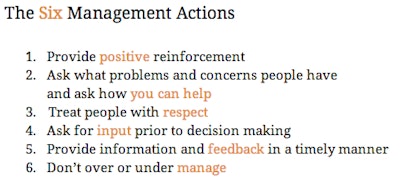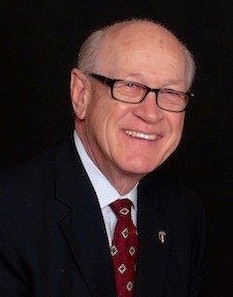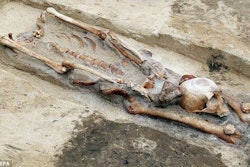
Action No. 2: Ask what questions, problems and concerns people have and ask how you can help
I believe this is one of the most unselfish things you can do in your life. The payback is many times greater than your invested time. A case in point was the example I cited in my last post, where I expressed my love for basketball. I not only wanted to be a better player, but the best player on the team. My coach asked me how he could help me achieve my goal, which opened the door for him to teach me the “drop step” and to be named the MVP and Most Coachable. The latter is most cherished. I still have the trophy.

By this time, many of my personal habits and ways of working had become ingrained. It was here that I learned the importance of employee engagement, getting input before making decisions and asking people what questions, concerns and problems they had and asking how I could help.
You see, although I knew a lot about basic engineering, I knew little about the design, test and development of HVAC products for these types of applications. So it was important to engage and communicate with the entire team to accomplish the objective. As a result of using this management action, the employees overwhelmed me with their support. It’s true that “two heads are better than one.”
If you’re not already, why not start using this 2nd management action? Ask what questions, problems and concerns people have and ask how you can help.
Action No. 3: Treat people with respect
Fast forward to yet another management experience that involved living and working abroad. The location was London, England, and the time was the early 1980s. A U.S. company had decided to form a joint venture with an East European entity.
The mission was to set up a trading company to sell and service the East European partners’ construction equipment products (track-type tractors and front-end loaders) produced under license from a leading U.S. construction equipment company. The charter required the company to employ mostly East Europeans and local British nationals with a few Americans, Australians, Iranians, etc. You get the picture.
Imagine this—East European nationals under communist control working side-by-side with a diversified group of employees in London. This is an example of finding the right people who can put differences aside for the greater cause. Those of us who knew how to work with the local government and get around town gave the East Europeans a great gift: respect.
In addition, the local U.K. nationals gave of themselves and treated the East European employee’s with respect, which provided a relatively smooth transition from everyday life in Eastern Europe to newfound surroundings in London. The joint venture’s success was a result of this collegial environment. What started out to be the U.S. company defensive strategy to control the licensee’s sales territory turned out to be to be a great offensive strategy. Everyone benefited!
As my parents taught me, “mind your manners and treat your elders (and others) with respect!
In my next post, we’ll look at Management Action No. 4: asking for input prior to decision making.
About the Author













